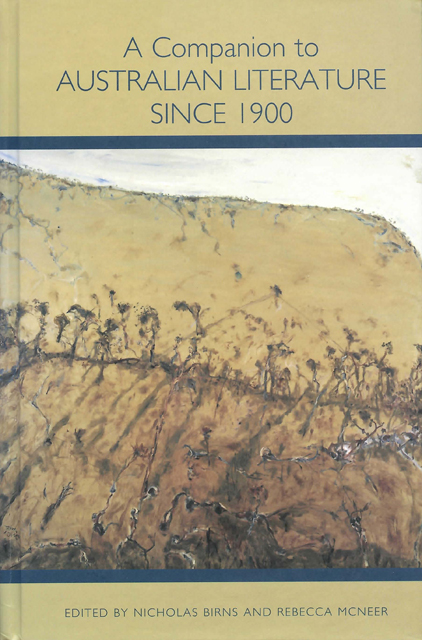Book contents
- Frontmatter
- Dedication
- Contents
- Chronology of Main Events in Australian History, 1901–2005
- Acknowledgments
- Note on the Cover Illustration and Artist
- Introduction
- Part 1 Identities
- Part 2 Writing Across Time
- Part 3 International Reputations
- Part 4 Writers and Regions
- Part 5 Beyond the Canon
- Notes on the Contributors
- Index
1 - Aboriginality since Mabo: Writing, Politics, and Art
Published online by Cambridge University Press: 10 March 2023
- Frontmatter
- Dedication
- Contents
- Chronology of Main Events in Australian History, 1901–2005
- Acknowledgments
- Note on the Cover Illustration and Artist
- Introduction
- Part 1 Identities
- Part 2 Writing Across Time
- Part 3 International Reputations
- Part 4 Writers and Regions
- Part 5 Beyond the Canon
- Notes on the Contributors
- Index
Summary
This Essay is Written on the land of the Kaurna Nation of the Adelaide Plains, South Australia. Its authors are, respectively, Indigenous and non-Indigenous. Such an introduction foreshadows a complex and contested history of naming and being named and a politics of representation. The ways in which literature and other forms of artistic textual expression have influenced and reflected on debates around Aboriginality will be acknowledged and Indigenous perspectives will be privileged; this is a response to the historical exclusion of Aboriginal people from determining the dominant definitions of Aboriginality. Many of the authors referred to below identify as Aboriginal, Indigenous, or as members of particular nations: their identification is explicitly recognized and respected. Others are not identified in this way, but this does not mean that their identity positions or politics are taken for granted. To call them simply non- Indigenous might suggest either a lack of indigeneity or the attribution of all other things but indigeneity. Neither connotation is helpful here. The complex and problematic identifiers Aboriginal and non-Aboriginal, Indigenous and non-Indigenous are to be used with care — as is the act of identification itself. Some Australians enjoy more freedom than others to choose how they will represent themselves, how they will be represented, and how that representation will be received. Eddie Mabo’s story serves as a guide to understanding the limits and the costs of that freedom.
It is important to establish at this point that what follows is as much about writing, storytelling, and acts of identity assertion and creative resistance as it is about literature. Many of the ideas discussed respond to a prevailing culture that too often values the written word as more truthful than other forms of expression — spoken narrative and storytelling, dance, visual art, film and new media — and too often pits genres, disciplines, and discourses against each other as competing conduits of good judgment and grounded truth: history and fiction for example. In this discussion literature is seen as one writing-space in a politicized continuum of expression and activism in which genres overlap.
- Type
- Chapter
- Information
- A Companion to Australian Literature since 1900 , pp. 17 - 40Publisher: Boydell & BrewerPrint publication year: 2010

